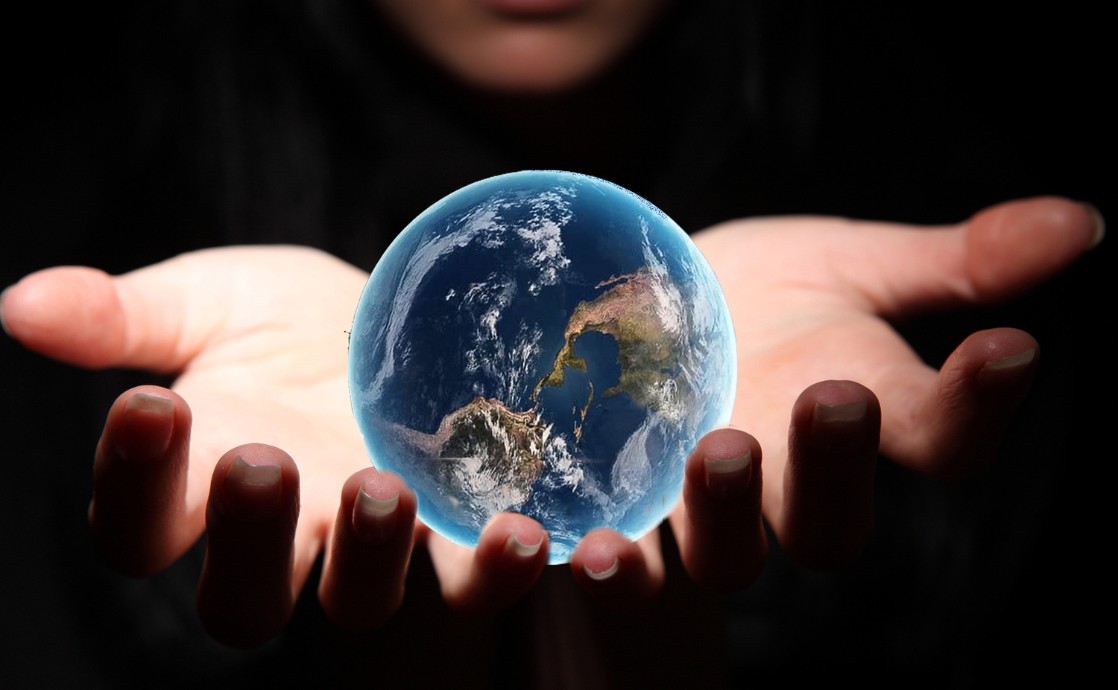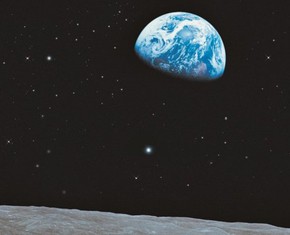The views expressed in our content reflect individual perspectives and do not represent the authoritative views of the Baha'i Faith.
This morning media outlets around the world reported on something new and noteworthy: the opening of a pavilion at Dubai’s global climate summit, COP28, meant for prayer and spiritual healing.
One of those media outlets, the New York Times, headlined the story “Got Climate Angst? At the U.N. Summit, There’s a Quiet, Spiritual Place.” Written by journalist Jenny Gross, the article said:
A pavilion at COP28 offers a space for meditation, prayer and something that feels lacking, at times, from global warming talks: hope. …
All religions are based in a recognition that nature is an act of divinity, according to the U.N. Environment Program. In the Baha’i faith, nature reflects both the divine and the oneness of humanity. In Buddhism, karma involves taking responsibility for future generations. According to the Shinto faith in Japan, spirits correspond to wind, rocks and water, and forests are sacred.
Perhaps, this news suggests, our world has begun to realize that climate change is just as much a spiritual issue as a scientific and technological one – or maybe more.
RELATED: Action on Climate Change: Multiple Paths to a Better Future
Let’s start with the article’s main premise – that “all religions are based in a recognition that nature is an act of divinity”. Certainly, that’s true of many faiths, but the Baha’i Faith takes that recognition farther than ever before in the history of religion, by espousing principles like these:
Nature is God’s Will and is its expression in and through the contingent world. (Baha’u’llah)
Were one to observe with an eye that discovereth the realities of all things, it would become clear that the greatest relationship that bindeth the world of being together lieth in the range of created things themselves, and that co-operation, mutual aid and reciprocity are essential characteristics in the unified body of the world of being, inasmuch as all created things are closely related together and each is influenced by the other or deriveth benefit therefrom, either directly or indirectly. (Abdu’l-Baha)
We cannot segregate the human heart from the environment outside us and say that once one of these is reformed everything will be improved. Man is organic with the world. His inner life moulds the environment and is itself also deeply affected by it. The one acts upon the other and every abiding change in the life of man is the result of these mutual reactions. (Shoghi Effendi, from a letter written on his behalf)
Until such time as the nations of the world understand and follow the admonitions of Baha’u’llah to whole-heartedly work together in looking after the best interests of all humankind, and unite in the search for ways and means to meet the many environmental problems besetting our planet … little progress will be made towards their solution …. (The Universal House of Justice)
As trustees, or stewards, of the planet’s vast resources and biological diversity, humanity must learn to make use of the earth’s natural resources, both renewable and non-renewable, in a manner that ensures sustainability and equity into the distant reaches of time. (The Baha’i International Community Statement on Development)
RELATED: Climate Change and Humanity 2.0
You may have noticed that these strong statements on the Earth’s environment and its protection and sustainability come from each one of the central figures of the Baha’i Faith as well as its administrative bodies – Baha’u’llah, the Faith’s prophet and founder; Abdu’l-Baha, Baha’u’llah’s son and successor; Shoghi Effendi, the Guardian of the Baha’i Faith and its leader after Abdu’l-Baha’s passing; the Universal House of Justice, the democratically-elected leadership body of the Faith today; and one of its agencies, the Baha’i International Community.
That successive, progressive record of Baha’i environmental consciousness and stewardship of the planet, then, did not just arise as an impetus from the Baha’is themselves – instead, it came to them from the founders and leaders of their Faith.
Baha’i scripture – the original literature of the revelation itself, comparable to the Bible of Judaism and Christianity and the Qur’an of Islam – contains these clear references to protecting the Earth’s natural resources for future generations. In a talk he gave in Paris in 1911, Abdu’l-Baha said: “Do not allow your minds to dwell on the present, but with eyes of faith look into the future, for in truth the Spirit of God is working in your midst.”
That hopeful message, aimed directly at future generations who will inherit this planet from us, asks everyone alive today to consider the lives of those who will live tomorrow.
You May Also Like
Comments

















— Rumi